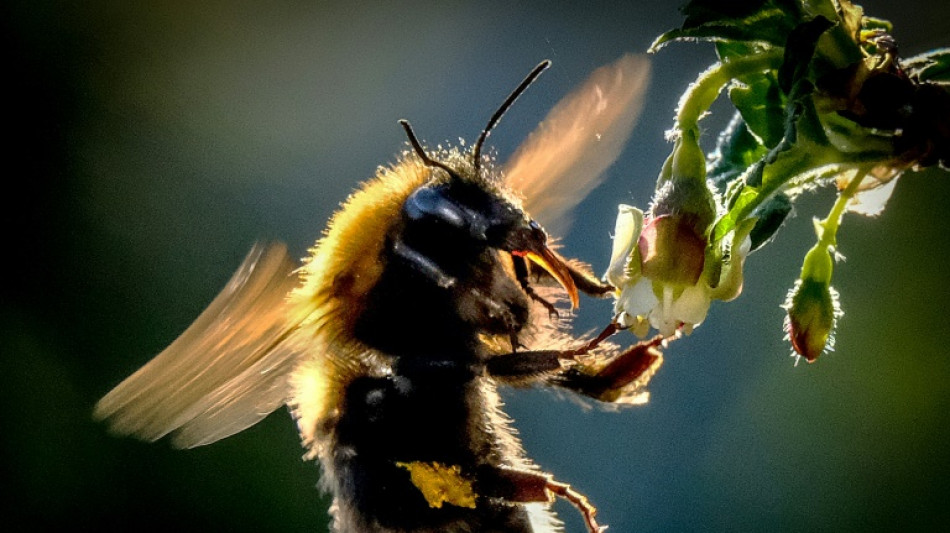
-
 Fermin Lopez brace hands Barca win at Slavia Prague
Fermin Lopez brace hands Barca win at Slavia Prague
-
Kane double fires Bayern into Champions League last 16

-
 Newcastle pounce on PSV errors to close in on Champions League last 16
Newcastle pounce on PSV errors to close in on Champions League last 16
-
In Davos speech, Trump repeatedly refers to Greenland as 'Iceland'

-
 Liverpool see off Marseille to close on Champions League last 16
Liverpool see off Marseille to close on Champions League last 16
-
Caicedo strikes late as Chelsea end Pafos resistance
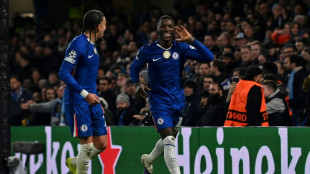
-
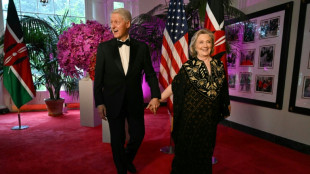 US Republicans begin push to hold Clintons in contempt over Epstein
US Republicans begin push to hold Clintons in contempt over Epstein
-
Trump says agreed 'framework' for US deal over Greenland

-
 Algeria's Zidane and Belghali banned over Nigeria AFCON scuffle
Algeria's Zidane and Belghali banned over Nigeria AFCON scuffle
-
Iran says 3,117 killed during protests, activists fear 'far higher' toll

-
 Atletico frustrated in Champions League draw at Galatasaray
Atletico frustrated in Champions League draw at Galatasaray
-
Israel says struck Syria-Lebanon border crossings used by Hezbollah
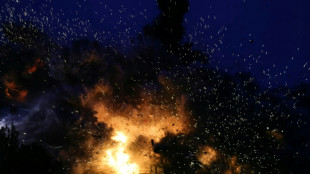
-
 Snapchat settles to avoid social media addiction trial
Snapchat settles to avoid social media addiction trial
-
'Extreme cold': Winter storm forecast to slam huge expanse of US

-
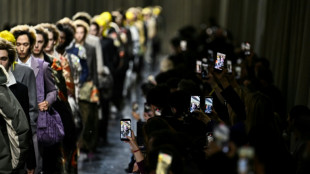 Jonathan Anderson reimagines aristocrats in second Dior Homme collection
Jonathan Anderson reimagines aristocrats in second Dior Homme collection
-
Former England rugby captain George to retire in 2027

-
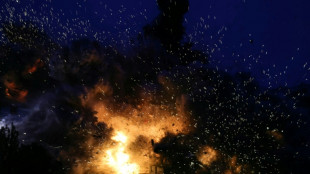 Israel launches wave of fresh strikes on Lebanon
Israel launches wave of fresh strikes on Lebanon
-
Ubisoft unveils details of big restructuring bet
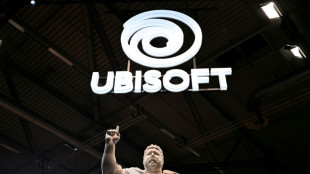
-
 Abhishek fireworks help India beat New Zealand in T20 opener
Abhishek fireworks help India beat New Zealand in T20 opener
-
Huge lines, laughs and gasps as Trump lectures Davos elite

-
 Trump rules out 'force' against Greenland but demands talks
Trump rules out 'force' against Greenland but demands talks
-
Stocks steadier as Trump rules out force to take Greenland

-
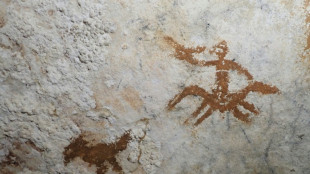 World's oldest cave art discovered in Indonesia
World's oldest cave art discovered in Indonesia
-
US hip-hop label Def Jam launches China division in Chengdu

-
 Dispersed Winter Olympics sites 'have added complexity': Coventry
Dispersed Winter Olympics sites 'have added complexity': Coventry
-
Man City players to refund fans after Bodo/Glimt debacle

-
 France's Lactalis recalls baby formula over toxin
France's Lactalis recalls baby formula over toxin
-
Pakistan rescuers scour blaze site for dozens missing

-
 Keenan return to Irish squad boosts Farrell ahead of 6 Nations
Keenan return to Irish squad boosts Farrell ahead of 6 Nations
-
US Treasury chief accuses Fed chair of 'politicising' central bank
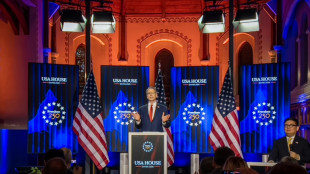
-
 Trump rules out force against Greenland but demands 'immediate' talks
Trump rules out force against Greenland but demands 'immediate' talks
-
Israeli strike kills three Gaza journalists including AFP freelancer

-
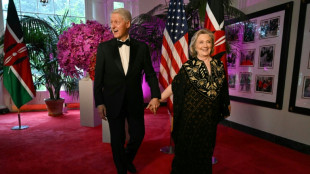 US Congress targets Clintons in Epstein contempt fight
US Congress targets Clintons in Epstein contempt fight
-
Huge lines, laughs and gasps as Trump addresses Davos elites

-
 Trump at Davos demands 'immediate' Greenland talks but rules out force
Trump at Davos demands 'immediate' Greenland talks but rules out force
-
Australia pauses for victims of Bondi Beach shooting

-
 Prince Harry says tabloid coverage felt like 'full blown stalking'
Prince Harry says tabloid coverage felt like 'full blown stalking'
-
Galthie drops experienced trio for France's Six Nations opener

-
 Over 1,400 Indonesians leave Cambodian scam groups in five days: embassy
Over 1,400 Indonesians leave Cambodian scam groups in five days: embassy
-
ICC rejects Bangladesh's plea to play T20 World Cup matches outside India

-
 Prince Harry says UK tabloid court battle in 'public's interest'
Prince Harry says UK tabloid court battle in 'public's interest'
-
Trump lands in Davos to push Greenland claims
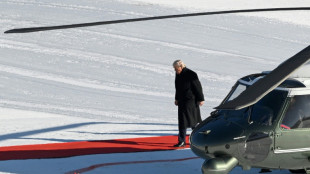
-
 Balkan wild rivers in steady decline: study
Balkan wild rivers in steady decline: study
-
Injured Capuozzo misses out on Italy Six Nations squad

-
 Mourners pay last respects to Italian icon Valentino
Mourners pay last respects to Italian icon Valentino
-
EU parliament refers Mercosur trade deal to bloc's top court

-
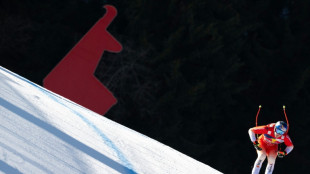 Odermatt seeks first Kitzbuehel victory with eye on Olympics
Odermatt seeks first Kitzbuehel victory with eye on Olympics
-
Italy's Brignone to be rested for Spindleruv Mlyn giant slalom

-
 Alcaraz spearheads big names into Australian Open third round
Alcaraz spearheads big names into Australian Open third round
-
European stocks dip ahead of Trump's Davos speech


Not just humans: Bees and chimps can also pass on their skills
Bumblebees and chimpanzees can learn skills from their peers so complicated that they could never have mastered them on their own, an ability previously thought to be unique to humans, two studies said on Wednesday.
One of humanity's crowning talents is called "cumulative culture" -- our ability to build up skills, knowledge and technology over time, improving them as they pass down through the generations.
This ability to transfer abilities no individual could learn by themselves is credited with helping driving humanity's rise and domination of the world.
"Imagine that you dropped some children on a deserted island," said Lars Chittka, a behavioural ecologist at the Queen Mary University of London and co-author of the bee study.
"They might -- with a bit of luck -- survive, but they would never know how to read or to write because this requires learning from previous generations," he said in a video published with the study in the journal Nature.
Previous experiments have demonstrated that some animals are capable of what is known as social learning -- working out how to do something by observing others of their kind.
Some of these behaviours seem to have been perfected over time, such as the incredible navigational talent of homing pigeons or chimpanzees' ability to crack nuts, suggesting they could be examples of cumulative culture.
But it is difficult for scientists to rule out that an individual pigeon or chimp could not have worked out how to do achieve these feats by themselves.
So a UK-led team of researchers turned to the humble bumblebee.
- 'So surprised' -
The first step was training a crack squad of "demonstrators" to do a complex skill that they could later teach to others.
In the lab, some bees were given a two-step puzzle box. They were tasked with first pushing a blue tab, then a red tab to release the sugary prize at the end.
Alice Bridges, a study co-author also from Queen Mary University, told AFP: "This task is really difficult for bees because we are essentially asking them to learn to do something in exchange for nothing" during the first step.
Initially, the baffled bees just tried to push the red tab -- without first moving the blue one -- and simply gave up.
To motivate the bees, the researchers put a sugary treat at the end of this first step which was gradually withdrawn as they mastered the process.
The demonstrators were then paired up with some new "naive" bees, which watched the demonstrators solve the puzzle before having a go themselves.
Five of the 15 naive bees swiftly completed the puzzle -- without needing a reward after the first stage.
"We were so surprised," Bridges said. "We were all just going crazy" when it first happened, she said.
Alex Thornton, a professor of cognitive evolution at the UK's University of Exeter not involved in the research, acknowledged that it was a small sample size.
"But the point is clear -- the task was exceptionally hard to learn alone, yet some bees could solve it through social learning," he wrote in a comment piece in Nature.
The authors of the research said it was the first demonstration of cumulative culture in an invertebrate.
- Chimp off the old block -
Chimpanzees -- our closest living relatives -- also seem to possess this talent, according to a separate study in Nature Human Behaviour.
The puzzle box for a troupe of semi-wild chimpanzees at the Chimfunshi Wildlife Orphanage in Zambia was a little more difficult.
It involved retrieving a wooden ball, holding open a drawer, slotting in the ball then closing it to release the peanut prize.
Over three months, 66 chimps tried and failed to solve the puzzle.
Then the Dutch-led team of researchers trained two demonstrator chimpanzees to show the others how it was done.
After two months, 14 "naive" chimps had mastered it.
And the more the chimps watched the demonstrators, the quicker they learned to solve the problem.
Bridges said the studies "can't help but fundamentally challenge the idea that cumulative culture is this extremely complex, rare ability that only the very 'smartest' species -- e.g. humans -- are capable of".
Thornton said the research again showed how "people habitually overestimate their abilities relative to those of other animals".
C.Koch--VB




